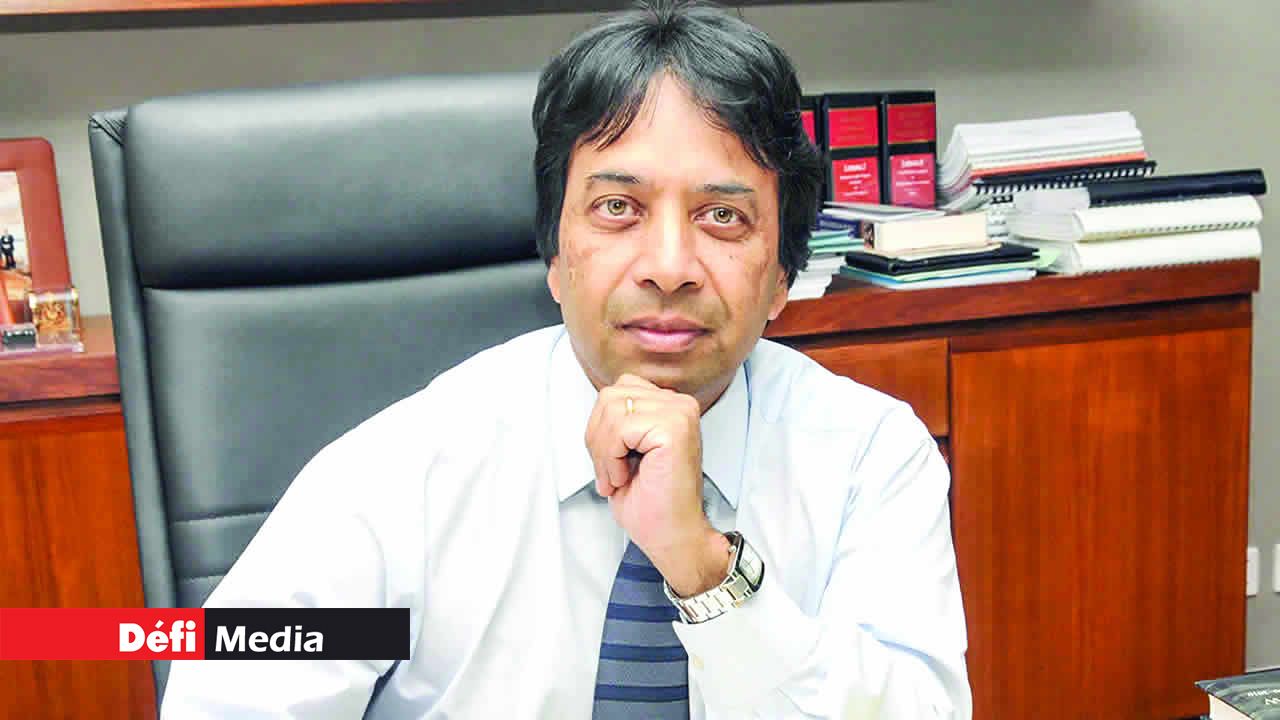
In its 76th issue of its monthly newsletter, the Director of Public Prosecutions, Mr Satyajit Boolell, SC, discusses the topic of ‘marriage of convenience’, with reference to a judgment recently delivered by the UK’s Supreme Court. He states that media reports have shown an increase of marriage of convenience or sham marriages. “For the first quarter of the year, some eleven cases involving African and European nationals are being investigated. They involve foreign workers who have overstayed their work permit and fake students who have entered Mauritius on student visas and whose visas have now expired.” The DPP takes the reference of the case Vikram Sing v Registrar of Civil Status & Ors 2017 SCJ 35 to explain this concept.
Publicité
He avers that our law does not specifically deal with sham marriages but instead lays down the conditions for a non-citizen to marry a citizen of Mauritius in the relevant provisions of Part IV of the Civil Status Act. “It requires strict compliance with these conditions since a non-citizen automatically acquires the status of a resident of Mauritius by virtue of being a spouse of a citizen of Mauritius. The Civil Status Act accordingly provides for the publication of a proposed civil marriage by a non-citizen. Once published, any person who has any ground to object to the celebration may in turn lodge a notice of objection of the proposed marriage with the Registrar of Civil Status. It is at this stage that the authorities can intervene to prevent a marriage of convenience.”
Nevertheless, the DPP states that if the genuineness of the proposed marriage is suspected, the Home Affairs Division of Prime Minister’s Office (with the concurrence of Passport and Immigration Office) can lodge a notice of objection of the proposed marriage with the Registrar of Civil Status. “The Registrar will in turn convene the parties, enquire into the matter and decide whether to uphold or reject the objection. The decision of the Registrar can in turn be challenged on appeal to a Judge in Chambers, who can order to quash or uphold the decision of the Registrar.”
In his conclusion, the DPP argues that it should not escape the vigilance of our investigators that a marriage of convenience is arguably a conspiracy contrary to section 109 of the Criminal Code (Supplementary) Act, as it entails an agreement between two persons to commit a wrongful act, which is against public order. Whilst the non-citizen is likely to face deportation, his or her local accomplice may well have to answer a charge of conspiracy in court.
Does Mauritius need a fraud Act?
Former Pupils Barrister Akeelesh Caussy and Vaneesha Ghunsam in the 76th issue of the newsletter debate about Fraud Act in Mauritius. First and foremost, the former pupils of Barrister provide a clear explanation of what is meant by fraud. They defined fraud as being a tricky means to gain a dishonest advantage, which is often financial, over another person. They list the following words to describe fraud: Scam, con, swindle, extortion, sham, double-cross, hoax, cheat, ploy, ruse, hoodwink, and confidence trick.
They state that fraud can be committed against individuals or businesses. “Financial frauds are a form of theft/ larceny which occur when a person or entity takes money or property, in an illicit manner, with the intent to gain a benefit from it. Such crimes usually involve some form of deceit, subterfuge or the abuse of a position of trust, which distinguishes them from common theft or robbery. High and unrealistic returns for small amounts of investment, easy and risk-free investment are some features of financial frauds. Some types of fraud are: Debit/ credit card frauds, identity thefts, insurance frauds, pyramid schemes, phishing, skimming, advance fee scams, funds transfer scams, amongst others.”
Akeelesh Caussy and Vaneesha Ghunsam reveal that in Mauritian law, there is neither a substantive offence of fraud, nor an offence of conspiracy to defraud. However, they say that offences where an element of fraud exists, such as larceny, embezzlement or swindling.
Time for reform
Both Akeelesh Caussy and Vaneesha Ghunsam questions whether it is time for reforms. They recalls that fraud offences have been noticed to increase at an alarming rate worldwide and where criminals are using latest innovation and technology to advance Fraud related crime internationally and whether the Law of Mauritius is suitable enough to combat Fraud. “Developed countries like the UK and France have already reorganised their Fraud Laws to adapt to this modern society.
It is not irrational to fear that some criminals might indeed take advantage of countries with an outdated Fraud law, to commit massive Fraud scams, where they finally can succeed to escape punishment of such crimes.”
They further underscore that the Fraud Act 2006 of the UK can also inspire us to influence the transformation of our timeworn law into a new separate Act which will hit the bull’s eye. “FA 2006 creates a single offence of fraud which may be perpetrated in one of three ways, thus condemning the offence in a more precise and subtle manner. It will also help to cover the whole of modern Fraud. FA 2006 is simple and more importantly it is a conduct based offence. By having our own law derived in this way, Fraudsters who were not entirely successful of their dishonest act could also be successfully prosecuted. Hence it is hoped that our swindling offence be amended and Fraudsters understand that will be indeed tougher to ‘get away with murder.”

Notre service WhatsApp. Vous êtes témoins d`un événement d`actualité ou d`une scène insolite? Envoyez-nous vos photos ou vidéos sur le 5 259 82 00 !





















